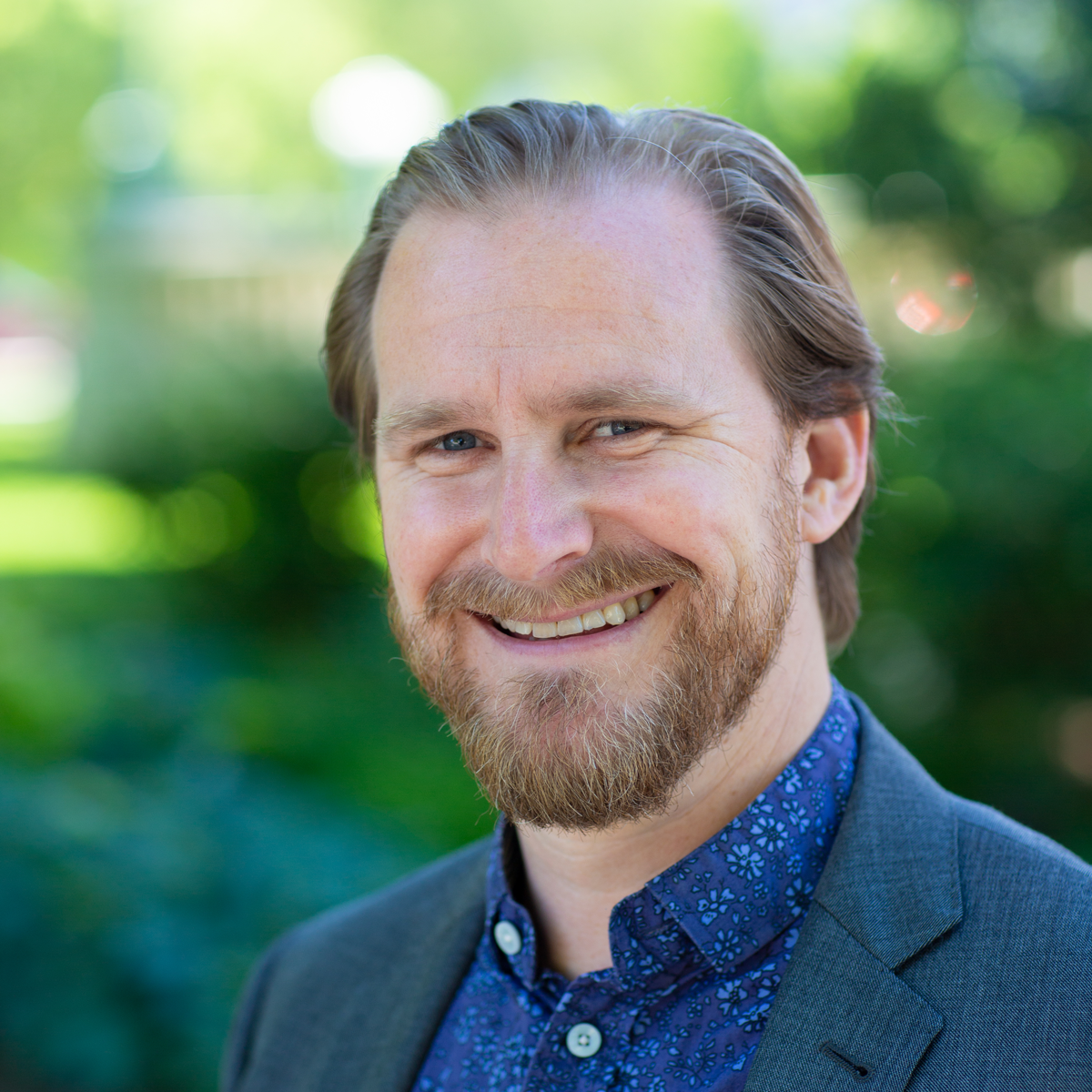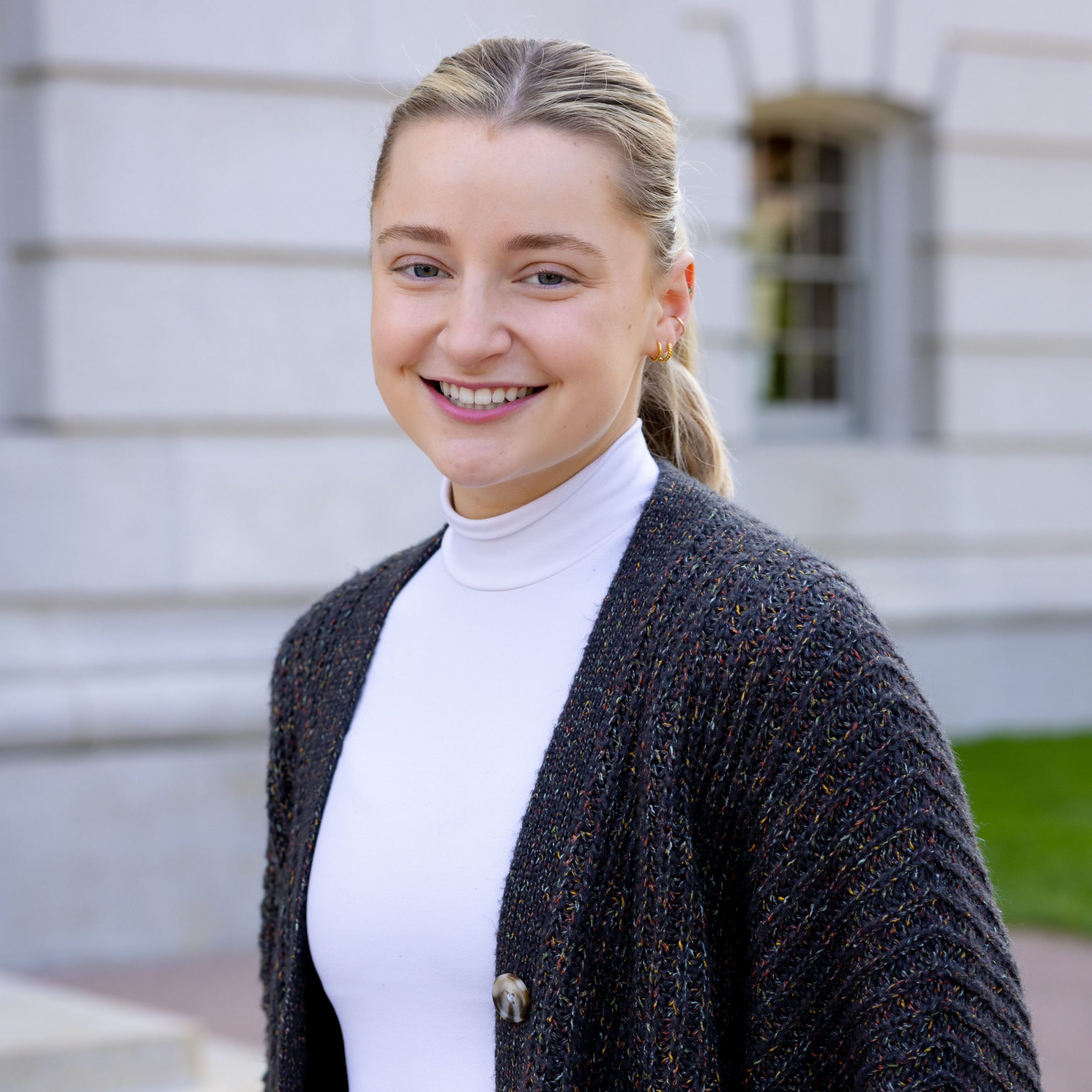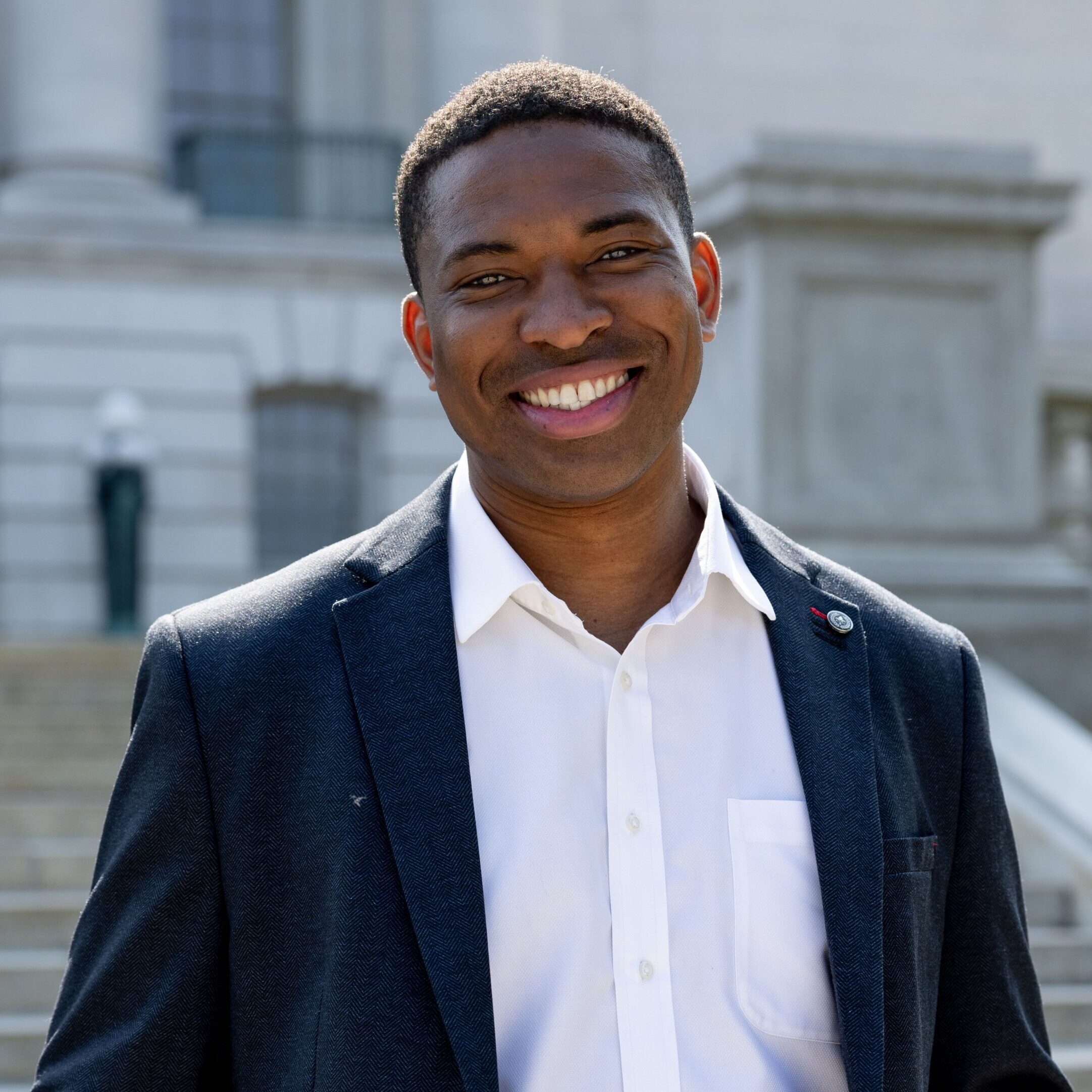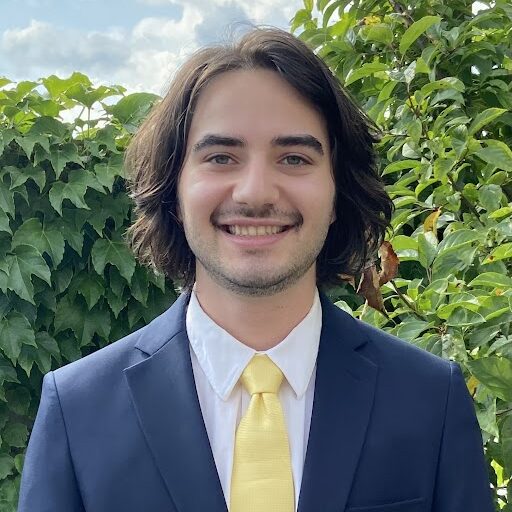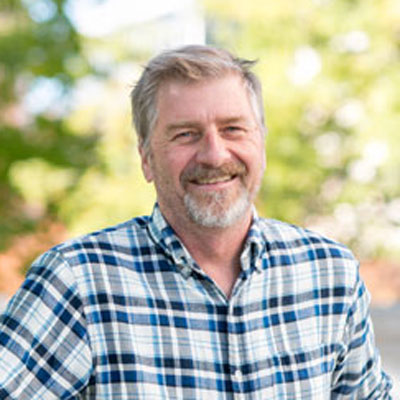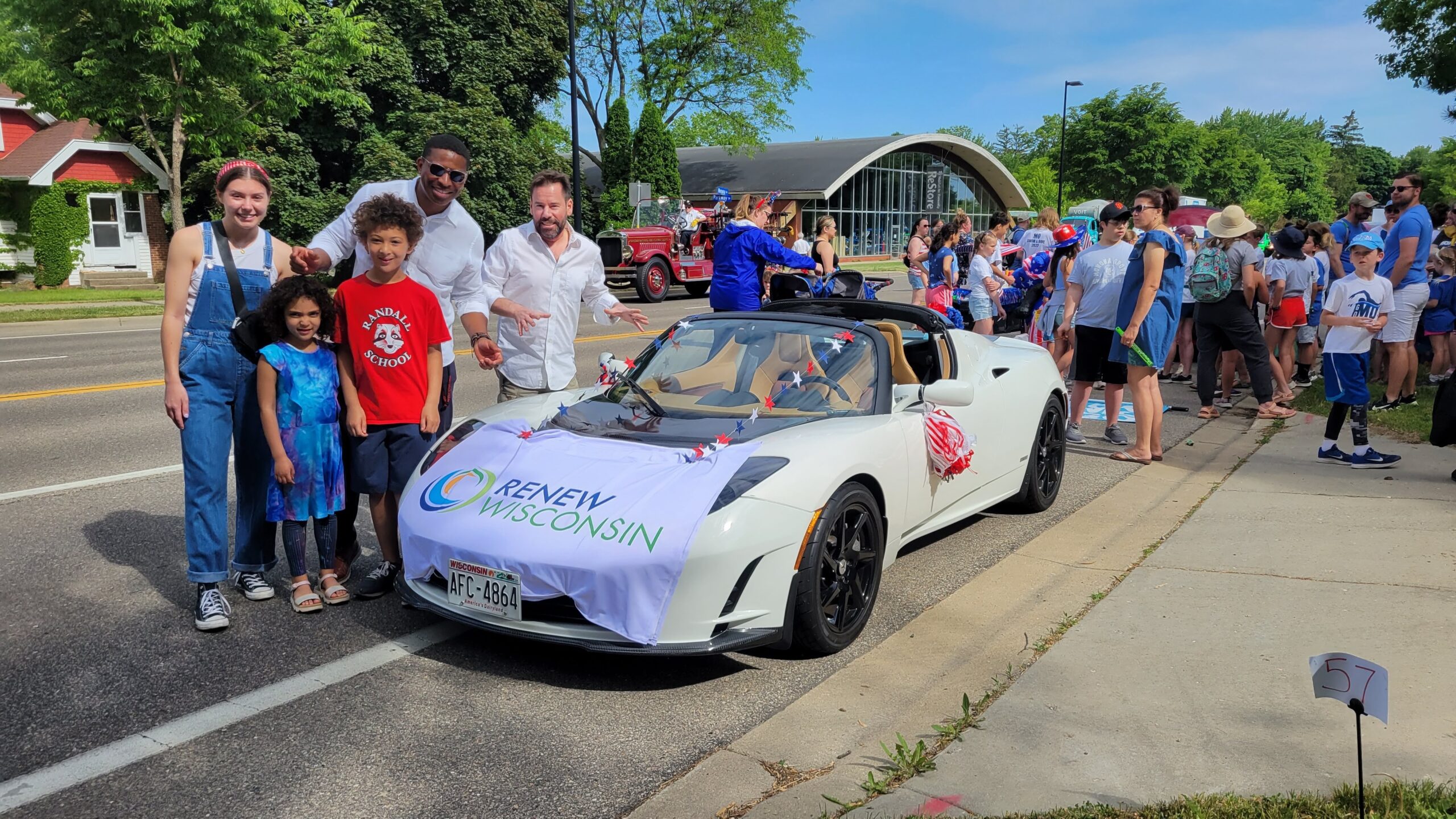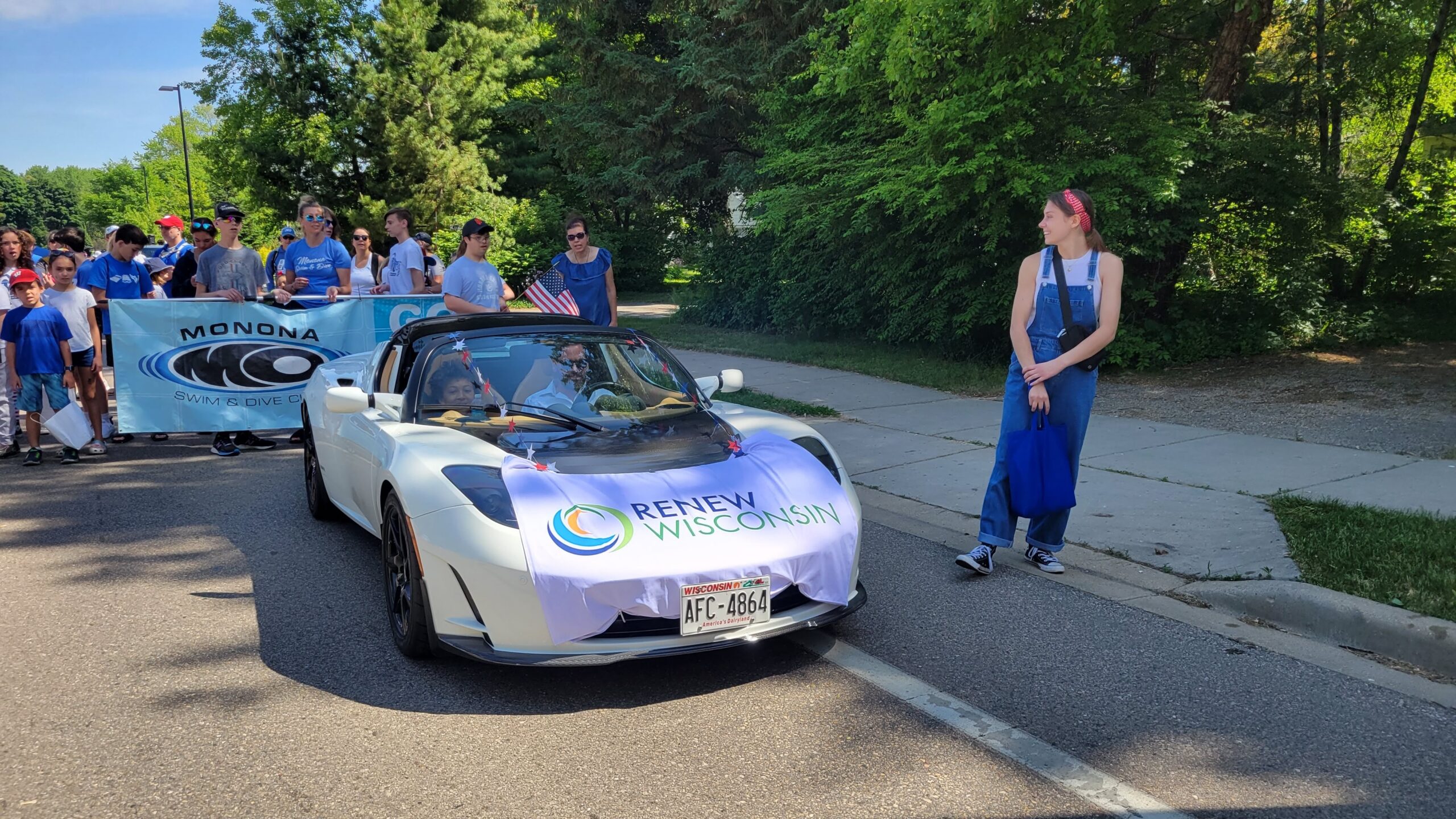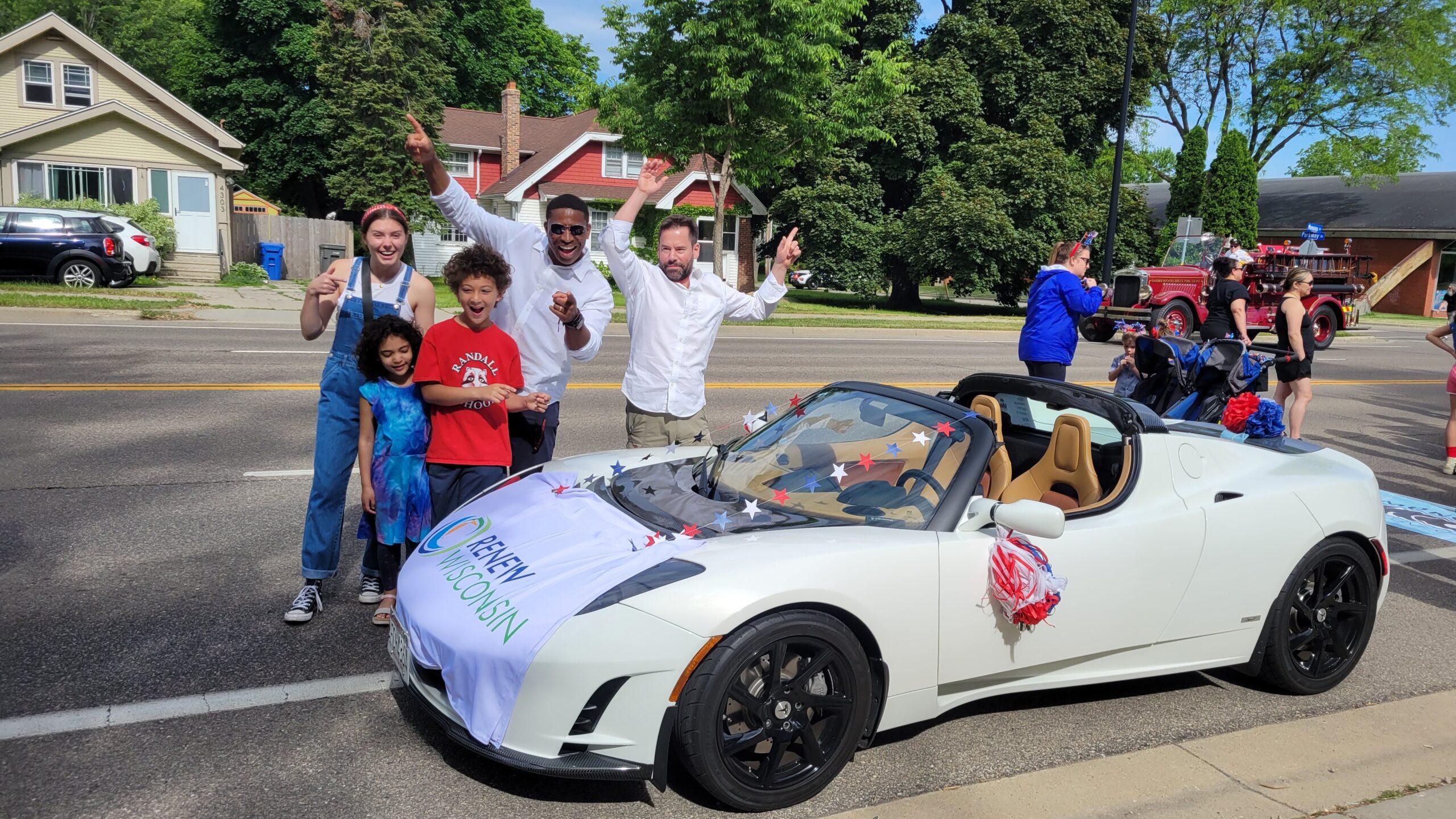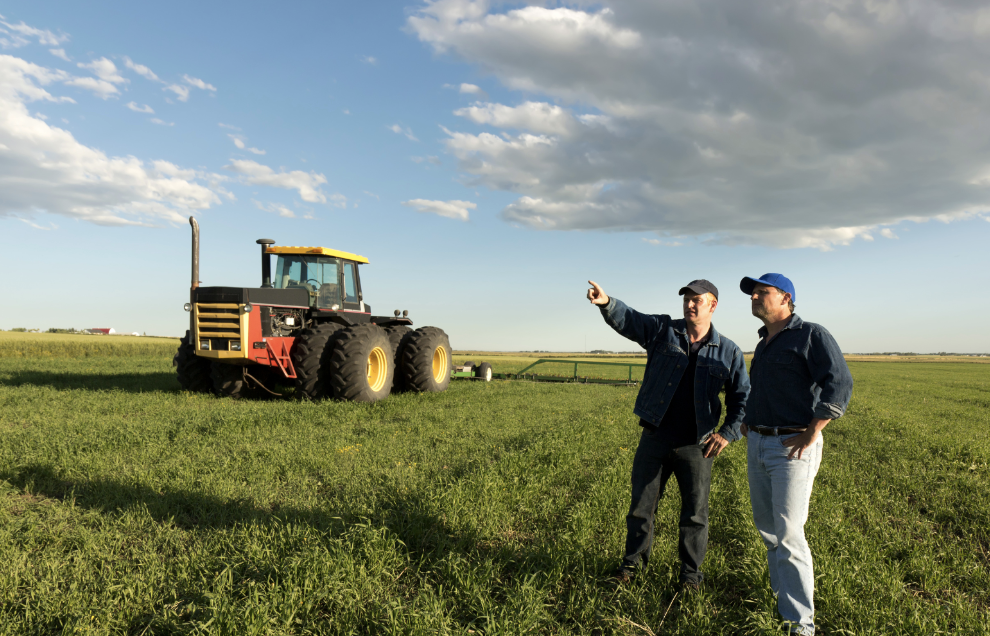
by Nolan Stumpf | Jun 27, 2023 | Electric Vehicles, Renewables, Solar
Solar fields can supply abundant, clean electricity – almost one-third of Wisconsin’s consumption by 2050 – using only a small portion of the state’s agricultural land. Nonetheless, solar energy development in agricultural areas raises new discussions of land use in Wisconsin. A recent report explores Wisconsin’s agricultural trends and outlines the potential solar energy has to sustain the state’s agricultural heritage, keep Wisconsin farmers in business, and provide environmental and economic benefits to the greater public. This blog will summarize the report’s findings and discuss the implications of solar energy development on land use for farmers in Wisconsin.
Wisconsin’s changing agricultural landscape
Wisconsin’s agricultural economy has changed substantially over the last several decades due to technological advancements, improved farm practices, evolving market conditions, and other macroeconomic trends. Data from the USDA National Agricultural Statistics Service shows that the amount of actively cultivated farmland has decreased by 23% since 1982, alongside the number of farm operations (from 90,000 to 64,100 in 2022).
At the same time, due to advancements in practices and technology, corn and soybean yields have increased dramatically (69% for corn and 75% for soybeans). However, the market’s oversupply has caused inflation-adjusted prices for corn to gradually decrease since 1909. Real prices for corn in 2022 are 51% lower than in 1940 and 42% lower than in 1980. Commodity price volatility has also added financial uncertainty for farmers, with farmers experiencing large annual swings in the prices received for corn. The downward trend in real prices and constant volatility in nominal prices shows why corn producers and other Wisconsin farmers face growing pressure to scale up their operations or sell their land.
Enrollment in the USDA’s Conservation Reserve Program (CRP), an ecosystem services program aimed at improving soil health and managing the oversupply of crops, has been decreasing since the early 2000s in Wisconsin. However, about 200,000 acres of voluntarily retired farmland under the CRP in the state is planted with ground covers such as grasses, trees, and native plants in exchange for an annual payment from the federal government.
Achieving a net-zero economy in Wisconsin with solar energy
Recent trends have allowed farmers to incorporate solar developments into a portion of their property and, at the same time, continue farming and sustaining their agricultural businesses. Solar fields offer stable revenue streams for Wisconsin farmers and financial support to local governments through the state’s shared revenue formula. RENEW Wisconsin’s collaborative report, Achieving 100% Clean Energy in Wisconsin (100% Clean Energy Report), shows that solar development opportunities will grow for Wisconsin farmers over the next few decades. According to the report, solar energy will be Wisconsin’s predominant source of new emission-free electricity generation to achieve a net-zero economy. In the most economical net-zero scenario explored in the 100% Clean Energy Report, 28.3 Gigawatts (GW) of utility-scale solar would be installed by 2050.
Solar energy will cover a relatively small amount of land by 2050
Based on the 100% Clean Energy Report, assuming the land footprint for 1 MW of utility-scale solar is 7 acres, approximately 198,000 acres would be required to host utility-scale solar in Wisconsin by 2050. Our analysis assumed 7 acres per MW of utility-scale solar PV to account for the increased productivity of solar panels over time. As one of the leading renewable resource technologies for the clean energy transition, solar panel design and installation layout will likely improve in the coming years, meaning solar fields will generate more electricity with fewer total inputs – including land.
Building 28.3 GW of utility-scale solar capacity would require 198,000 acres of land, which is 0.57% of Wisconsin’s total land area (34.7 million acres). This would equate to 1.4% of total agricultural land (14.2 million acres) or about 2.4% of field cropland (8.4 million acres) in Wisconsin from another perspective. These percentages assume all of the 28.3 GW of solar would be sited on agricultural land, which is unlikely. Though utility-scale solar developments have predominately been sited on farmland in the past, a study from UW-Stevens Point shows the vast land area across the state that may be suitable for utility-scale solar development.
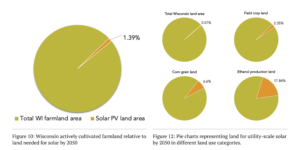
Ethanol and the future of energy farming
Farming for energy production is already common in Wisconsin, with about 37% of the corn grown used for ethanol. Wisconsin would only need to convert about 18% of corn-ethanol land to solar energy production by 2050 to achieve 28.3 GW of capacity. With a likely decrease in demand for corn-based ethanol needed by 2050 (due to the adoption of electric vehicles and substitution toward non-food crop feedstocks for biofuels), incorporating solar generation on farms is a way for Wisconsin farmers to help sustain their businesses.
A study by CLEAN Wisconsin demonstrates the efficiency of electric vehicles powered by solar energy over ethanol-powered vehicles. Their report finds that ethanol used in internal combustion engines requires about 85 times the amount of land to power the same amount of driving as solar-charged electric vehicles. Increased adoption of electric vehicles leads to decreasing gasoline demand and correspondingly diminishing the need for ethanol. With all else held constant, this trend will inexorably dampen corn prices received by the growers supplying local ethanol plants. Incorporating solar generation on farms is a way to sustain agriculture in Wisconsin, providing farmers with a stable revenue stream for years.
Co-benefits of solar energy on farms
Solar projects can provide beneficial ecosystem services to farmers and landowners in Wisconsin. Solar farms can last up to 35 years, allowing the land and soil underneath the arrays to rest and recover. Once a solar installation is decommissioned, the land can once again be farmed and will be more fertile when replanted, in contrast to residential or commercial development, which is much more permanent when complete [11]. Planting native plants and grasses amongst the arrays is becoming a standard practice, improving soil health and serving as pollinator environments.
In addition, advancements in design and technology have spurred research into agrivoltaics, or the simultaneous land use of solar energy generation and conventional agricultural activities. This co-location of activities provides many additional benefits, including dual revenue streams for the landowner and reduced heat stress on crops or grazing animals due to the shade of the solar panels. By altering the panels’ standard configurations and tilt schedules, researchers are investigating how to optimize crop yields and energy production.
Solar energy can help sustain Wisconsin farm businesses
Solar fields can supply almost one-third of Wisconsin’s electricity consumption in 2050 using a small portion of agricultural land. Nonetheless, agriculture is a significant part of Wisconsin’s economic and cultural identity, and Wisconsinites are connected to the image of Wisconsin’s landscape. As the farming industry continues to change, Wisconsin must allow farmers’ businesses to evolve. Solar developments can help family farms thrive with stable lease payments, support diverse soil health and ecosystem service benefits, and create local economic benefits. Wisconsin farmers and solar energy are helping to advance a stronger, healthier Wisconsin powered by clean energy.
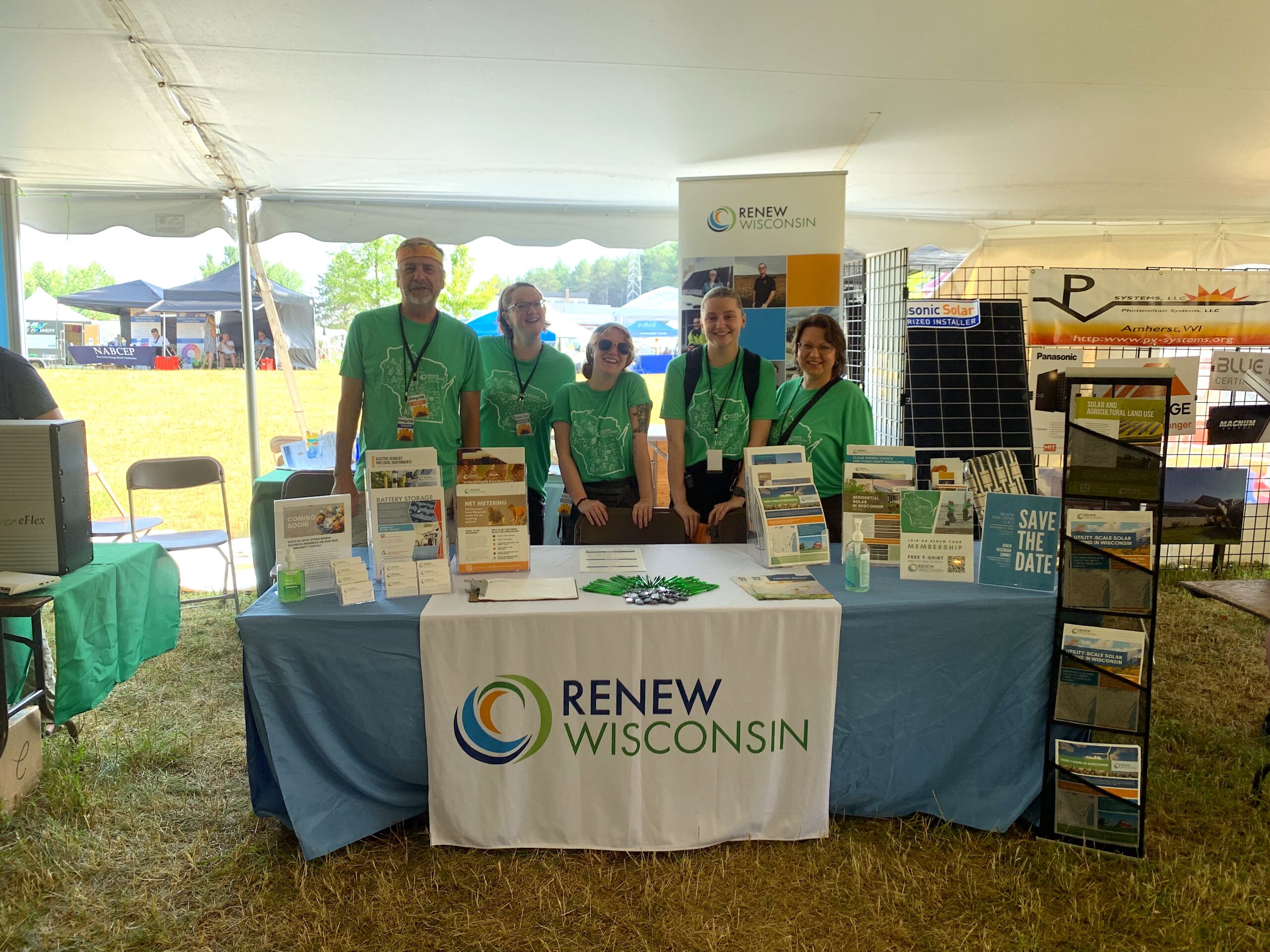
by Julia Holzschuh | Jun 27, 2023 | Electric Vehicles, Electrification, Energy Storage, Events, Inflation Reduction Act, Local Government, Netzero Wisconsin, Policy, Programs, RENEW Wisconsin, Renewables, Solar, Solar for Good, Sustainability, Utility Scale
Last weekend, the Midwest Renewable Energy Association (MREA) hosted the 32nd Annual Energy Fair, bringing people together to learn about sustainability and clean energy, connect with others, and take action toward a sustainable future. The Fair featured workshops, exhibitors, live music, inspiring keynote speakers, family fun, great local food, and more.
RENEW staff presented some compelling workshops and you can download slides from their presentations below.
Zero Carbon by 2050—A Path for Wisconsin
Andrew Kell, RENEW Policy Director, discussed zero-carbon goals and ongoing planning efforts in Wisconsin. Andrew also was a guest on a live podcast, focused on Wisconsin’s Net Zero future.
MadiSUN Workforce Training
Lauren Cohen, RENEW Program Coordinator, held a workshop regarding career growth opportunities within Wisconsin’s clean energy industry, focusing primarily on opportunities within the solar industry.
Vehicle-to-Grid: Opportunities and Challenges
Francisco Sayu, RENEW Emerging Technology Director, discussed how Vehicle-to-Grid technology unlocks the energy stored in electric vehicles and opens opportunities for energy trading, energy management, and grid resiliency.
Farming Sunshine: Solar and Ag Land Use
Nolan Stumpf, one of RENEW’s Interns, presented a session regarding solar farms and the opportunities and challenges of using the land for farming purposes and advancing clean energy.
Can Clean Energy Overcome Local Opposition?
Michael Vickerman, RENEW Clean Energy Deployment Manager, discussed the opposition clean energy faces at the local level and how to overcome those barriers.
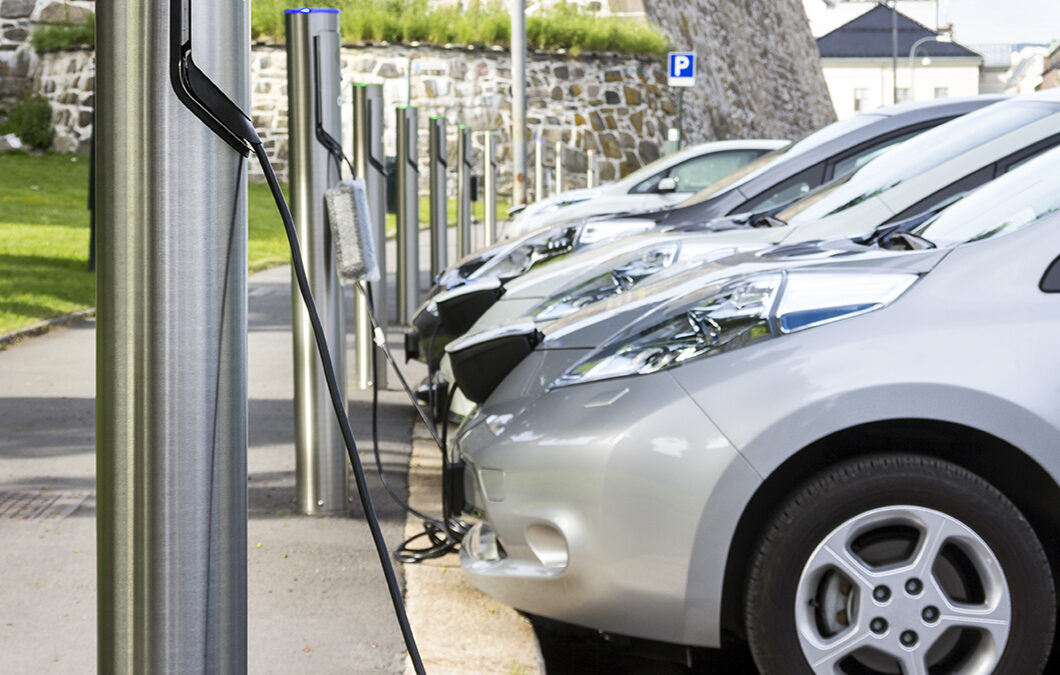
by Francisco Sayu | Jun 16, 2023 | Advocacy, Electric Vehicles
Co-authored by Julia Herkert
In 1830s Scotland, an inventor named Robert Anderson dedicated himself to a parlor trick: a horseless carriage. By connecting a battery to a carriage, Anderson astounded the public with his vehicle that could mysteriously move on its own. While this carriage ran on a non-rechargeable battery that could hardly travel a few miles before running out of power, Anderson’s prototype triggered a breakthrough that would last centuries. Today, electric vehicles (EVs) have evolved into a leading force in the push toward a healthier and more sustainable way to transport people and goods, and it all started with a magic trick.
Hopefully, at this point, we don’t have to convince anyone that air pollution is harmful. But for those that prefer data over opinions, we recommend taking a look at a recent study by the University of Wisconsin–Madison suggesting that eliminating air pollution emissions from energy-related activities in the United States would prevent more than 50,000 premature deaths and provide more than $600 billion in benefits each year from avoided illness and death.
RENEW promotes EVs for the same reasons we encourage clean energy – replacing gasoline and diesel vehicles with EVs can help reduce air pollution and produce a healthier, more vibrant Wisconsin for all. Like clean energy deployment, putting EVs on the road requires strategic technology, policy, and infrastructure coordination. This coordination is essential because the technology alone isn’t enough to produce enduring results. Let’s look at the history of EV technology in America and the policies and infrastructure we need to unlock the benefits of an electrified – pollution-free – transportation future.
EVs have been around for decades, and many waves of innovation have occurred since Anderson’s horseless carriage prototype. The most recent wave of vehicle electrification in the U.S. started with General Motors’ EV1. The EV1 was considered the first mass-market electric vehicle and utilized lead batteries for a range of about 100 miles. “It was an exciting time because the technology of an electric vehicle was obvious,” stated Annette Clayton, a former executive at General Motors, “The question was, could you make money doing it… and if the cars were available, would you start to see the infrastructure to actually charge those vehicles become available?” You can watch the 2006 documentary Who Killed the Electric Car? to learn more about General Motors’ EV1 program.
Unfortunately, while demand for the EV1 was high and the car was road ready, the infrastructure wasn’t prepared for the EV1. A pattern of electric transportation technology advancing beyond available infrastructure and policy has long plagued EVs’ stable integration into everyday transportation modes. Not only this, but General Motors was not making a substantial profit from the mass production of these vehicles despite there being a high demand for them. With little to no charging infrastructure to reduce range anxiety (the fear that an electric vehicle will not have enough battery charge to reach its destination, leaving its occupants stranded) and little room for profit, General Motors bought back their EV1s and killed the electric car. Two decades later, EV technology is unquestionably ready, and several automakers are swearing to go all-EV by 2040 or sooner.
Only one percent of the 250 million cars, SUVs, and light-duty trucks on American roads are electric, but the industry projects that 25 to 30 percent of new car sales could be electric by 2030. Moreover, electric vehicle prices continue to decrease while vehicle range (the distance an EV can travel on a single charge) continues to increase. Refueling times are getting shorter, too, with some EV models capable of recharging their batteries to 80 percent in less than 18 minutes.
Now that EV technology is ready, The Federal, State, and local governments are investing in developing the necessary infrastructure. Specifically, the U.S Government plans to build a network of 500,000 EV charging stations along the main highway corridors by 2030. The National Electric Vehicle Infrastructure Plan, or NEVI, provides funding to build EV charging stations within a mile of the main highway corridors at least every fifty miles. Wisconsin is planning to use $78.6 Million from the NEVI plan to build 62 EV charging hubs along I-90, I-94, I-39, I-41, I-43, and other highways. Check this blog post to learn more about Wisconsin’s Electric Vehicle Infrastructure (WEVI) plan.
So, what about EV policy? And why do we need policies to deploy EVs? EVs use electricity rather than petroleum fuels, and because electricity markets are heavily regulated, many aspects of EV deployment are controlled by energy regulation. For example, in Wisconsin, only public utilities are allowed to sell electricity. In other words, EV charging stations operating in Wisconsin are not allowed to charge EV drivers by the amount of electricity that goes into their EV batteries or kilowatt-hours used. Instead, EV charging stations in Wisconsin charge a parking fee as a proxy for EV charging. On our last visit to an Electrify America fast charging station, we paid $4.32 for 27 minutes of charge, billed at $0.16 per minute. These time-based rates create inequities with fast charging because EVs have different charging speeds. Put, EV drivers of slower-charging EVs pay more for electricity at public charging stations in Wisconsin than those who drive faster-charging vehicles. An example to illustrate this is that the Porsche Taycan can take up to 270 kW of power, while the Chevrolet Bolt can only handle up to 50 kW. This means that Porsche drivers pay significantly less than Chevrolet drivers when using fast charging stations that provide over 50 kW, which is unfair. The NEVI plan requires energy-based billing at all EV charging stations built with federal funding to address this issue. Unfortunately, Wisconsin is among the few states prohibiting energy-based EV charging fees. The NEVI plan also requires a minimum charging speed of 150 kW at all charging stations.
But not all EV policies are about electricity. Many EV policies address the affordability of EVs and access to home charging. For example, Vermont passed a law to help the highest-need drivers switch to EVs and save on fuel costs. The state of Illinois is creating legislation to make it easier for multifamily dwellers to access home EV charging. Other EV policies include topics related to road funding (gas tax), direct sales of EVs, and emissions standards.
The moment has finally arrived where infrastructure and policies are catching up to the advanced technologies of EVs, and these cleaner vehicles are now rightfully taking center stage in the movement toward a more sustainable future. Through technological innovation, infrastructure development, and smart policymaking, EVs provide solutions to many problems ranging from air pollution to energy security. Next time you are in the market for a new or used vehicle, you should test drive an EV. You won’t regret it!
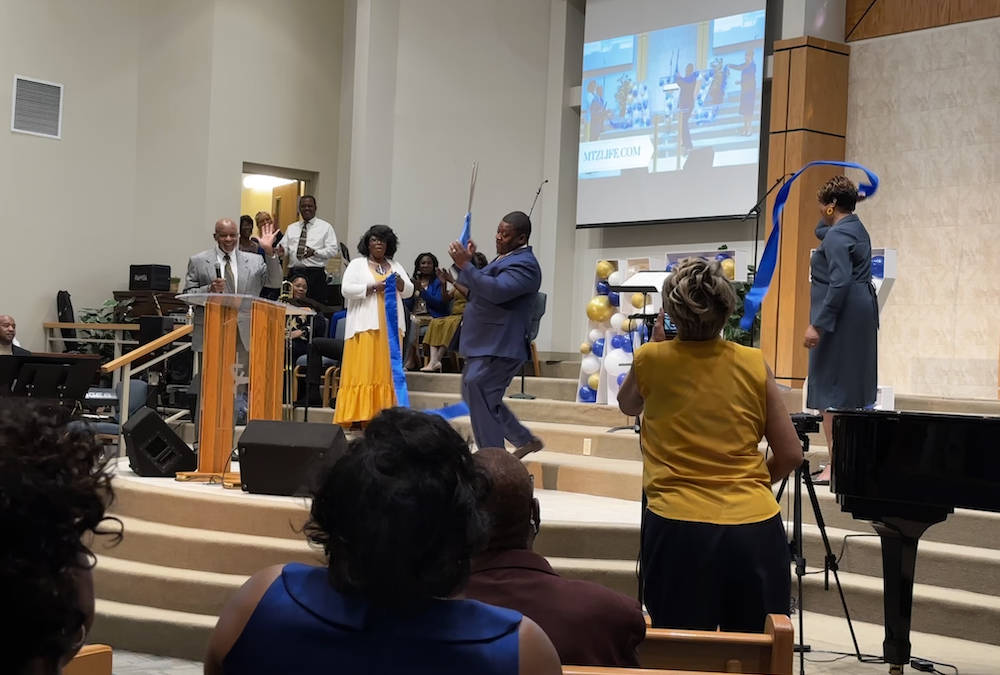
by Lauren Cohen | May 31, 2023 | Solar, Solar for Good
On Sunday, May 21, Mount Zion Baptist Church held a ribbon cutting ceremony to celebrate the completion of their 21.6-kilowatt solar array. Mt. Zion Baptist Church is the largest and one of the oldest predominantly African American churches in Wisconsin, with an unwavering mission to live their faith, love their family, and lift up their community.
RENEW Wisconsin, an organization dedicated to advancing renewable energy, played a pivotal role in Mt. Zion’s solar journey. Through their Solar for Good program, created in partnership with the Couillard Solar Foundation, Mt. Zion received a grant of 42 solar panels—enough to supply half of the panels required for the installation.
Additionally, Mt. Zion was awarded a Backyard Solar grant from MadiSUN, a City of Madison program administered by RENEW Wisconsin. This $10,000 grant further assisted the church’s solar endeavor. These collaborations exemplify the power of partnerships in expanding solar power access throughout Wisconsin.
Mt. Zion Baptist Church’s solar installation was made possible through the expertise and guidance of WES Engineering and Legacy Solar Cooperative. WES Engineering completed the installation, meanwhile Legacy Solar Cooperative provided invaluable consultation, offering their solar expertise, and assisting with tax financing options.
The solar installation at Mt. Zion Baptist Church is expected to produce roughly 24,500 kWh per year, offsetting 40% of the church’s annual energy needs. Beyond the environmental benefits, this installation has the potential to have a great positive impact on the community.
By embracing solar power, Mt. Zion has significantly reduced their monthly energy costs. These savings have allowed the church to reallocate resources to support their programs, particularly those dedicated to feeding the hungry and providing educational opportunities for underserved youth.
As a prominent institution within the South Madison community, Mt. Zion’s commitment to environmental stewardship serves as a great example, demonstrating the potential long-term economic and environmental advantages of transitioning away from nonrenewable resources, inspiring others to follow suit.
Mt. Zion Baptist Church’s solar ribbon cutting ceremony marked a significant achievement in their pursuit of sustainable stewardship. By embracing solar energy, the church has reduced its energy costs, directed more resources toward vital programs, and set a powerful precedent for environmental leadership within their community. Through this installation, Mt. Zion Baptist Church has shown that faith, family, and community can thrive hand in hand with a commitment to sustainable practices.
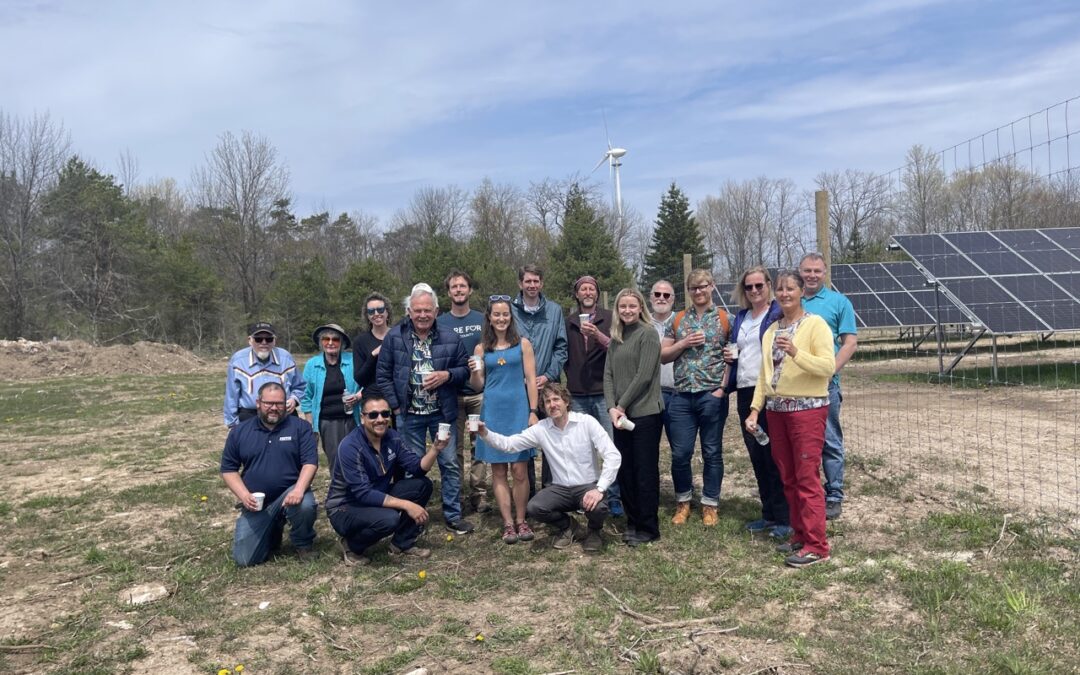
by Lauren Cohen | May 31, 2023 | Solar, Solar for Good
On Friday, May 12, Lawrence University celebrated the completion of its newly installed 217-kilowatt solar array. Lawrence University is a nonprofit, mission-based college with over 1,500 students from nearly every state and over 30 countries that is dedicated to educating undergraduate students in the liberal arts and sciences.
This solar array was installed by Faith Technologies at their Björklunden North Campus in Bailey’s Harbor, WI and is the most significant initiative in their goal of creating a net zero carbon emissions facility. This ground-mounted array consists of 536 solar panels and will produce 279,000 kWh of annual energy. With this solar installation, Björklunden’s entire annual energy usage will be offset.
This solar installation is not the first sustainability initiative taken on by Lawrence University’s North Campus. Their 441-acre lakeshore property is also home to a wind turbine and a soon-to-be geothermal installation. These renewable energy implementations create a unique opportunity for the University’s students to be able to study three energy sources—solar, wind, and geothermal—in one location.
“Sustainability is one of Lawrence’s four core values and—because it is a critical component of responsible citizenship—central to our educational mission,” says Mark Breseman, Associate Vice President of Alumni and Constituency Engagement. “Installing solar affirms our dedication to a sustainable future and advances our educational mission.”
This solar energy project was funded from several sources including Focus on Energy Funds, fundraising from friends, alumni, and the Door County Community, and a $10,000 grant from Solar for Good, a RENEW Wisconsin program created in partnership with the Couillard Solar Foundation with the goal of expanding solar energy in Wisconsin.
“The solar project will enhance the education we offer students and visitors, relieve energy costs to support our educational mission, facilitate research and technical innovations in solar and other forms of clean energy, and nurture environmental stewardship in the county,” continued Breseman.
The completion of their 217-kilowatt solar array at Björklunden is a significant milestone in Lawrence University’s journey towards achieving net-zero. By prioritizing sustainability, the university not only demonstrates its dedication to its educational mission but to advancing a renewable energy future. This installation enhances education, reduces energy costs, promotes research and innovation, and fosters environmental stewardship, setting an example for other institutions and communities aspiring to build a cleaner, greener future.
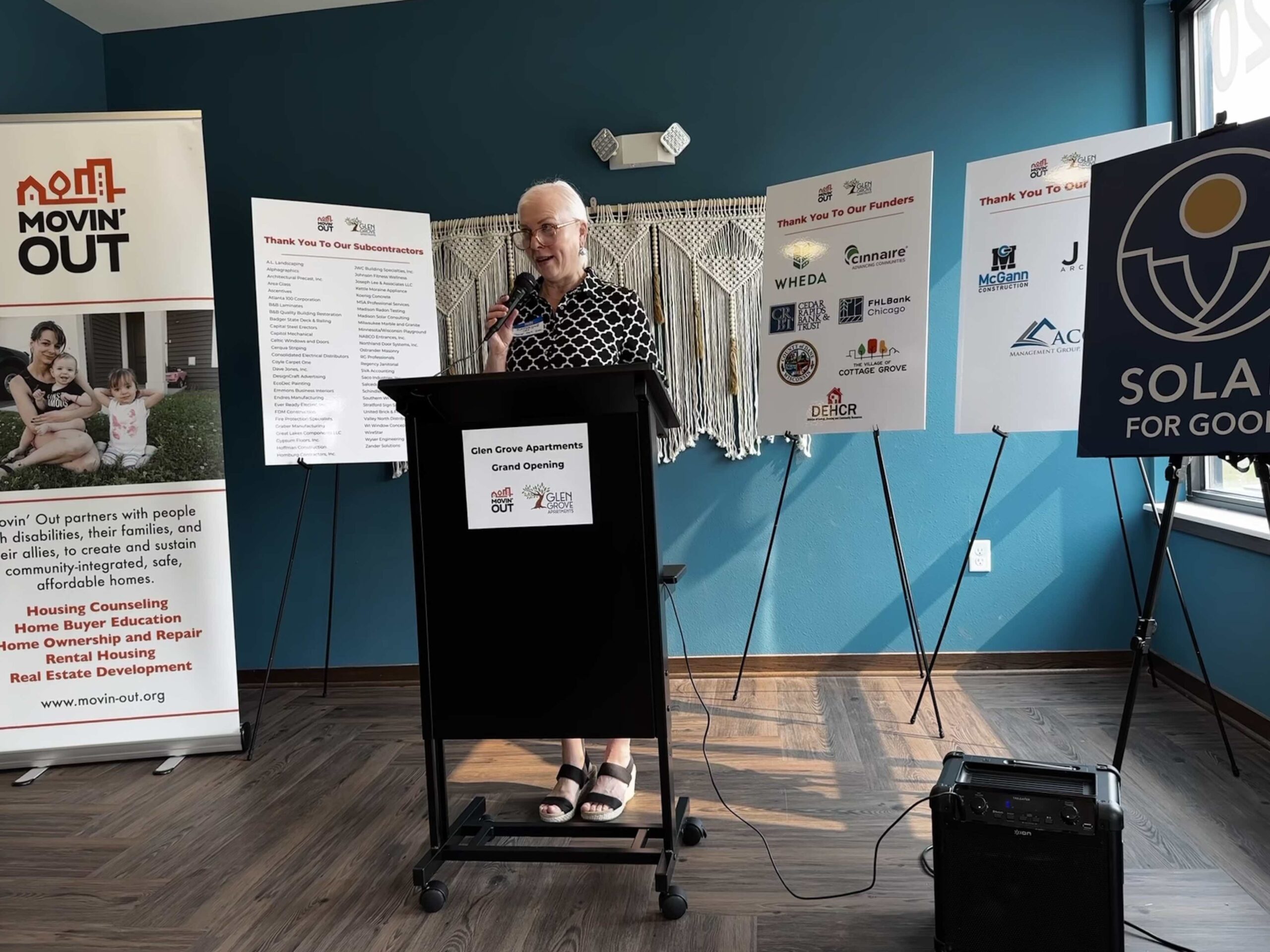
by Lauren Cohen | May 31, 2023 | Solar, Solar for Good
On Thursday, May 18, Movin’ Out Inc. celebrated the completion of its newly installed 20-kilowatt solar array. Movin’ out Inc. is a nonprofit organization located in Madison, Wisconsin whose mission is to provide housing solutions for people and families with disabilities, by creating safe, affordable, and community-integrated homes.
The solar system consists of 38 solar panels, was installed by Westphal Electric on the Glen Grove Apartments, and is projected to produce 24,216 kWh of annual energy, offsetting 90% of the building’s common-area electric loads.
This project came to fruition from multiple funding sources, including Focus on Energy Funds, a public fundraising campaign, as well as a donation from Solar for Good. Solar for Good is a RENEW Wisconsin program, created in partnership with the Couillard Solar Foundation to expand solar among nonprofits in Wisconsin.
Movin’ Out has been the recipient of two Solar for Good grants, receiving 19 of the 38 panels required for their most recent solar project. “Collaborating with Solar for Good allows us to include efficient and innovative approaches that would not be possible otherwise.” said Kathryne Auerback, CEO of Movin’ Out.
The economic savings generated by this solar installation are incredibly helpful to residents in affordable housing. The array “will help keep additional income in our residents’ hands to spend on healthcare costs, food, and purchase other discretionary items that residents in affordable housing are often times forced with making a decision to go without,” said Narik Riak, Real Estate Development Associate with Movin’ Out.
The reduced operating costs provided by the solar array will be reflected in the tenants’ monthly rent and minimize the possibility of future rent increases. With the installation of this solar array, Movin’ Out is addressing critical issues of environmental justice and energy burden. “Movin’ Out recognizes that multiply-marginalized communities are the most vulnerable to the effects of climate change, but often have the least access to resources that build resilience,” continued Carlson-Edwards.
By installing this solar array, Movin’ Out is empowering marginalized communities, and helping to build a more sustainable and resilient Wisconsin. This project highlights the transformative potential of renewable energy in creating positive change and will serve as a model for other organizations to follow.
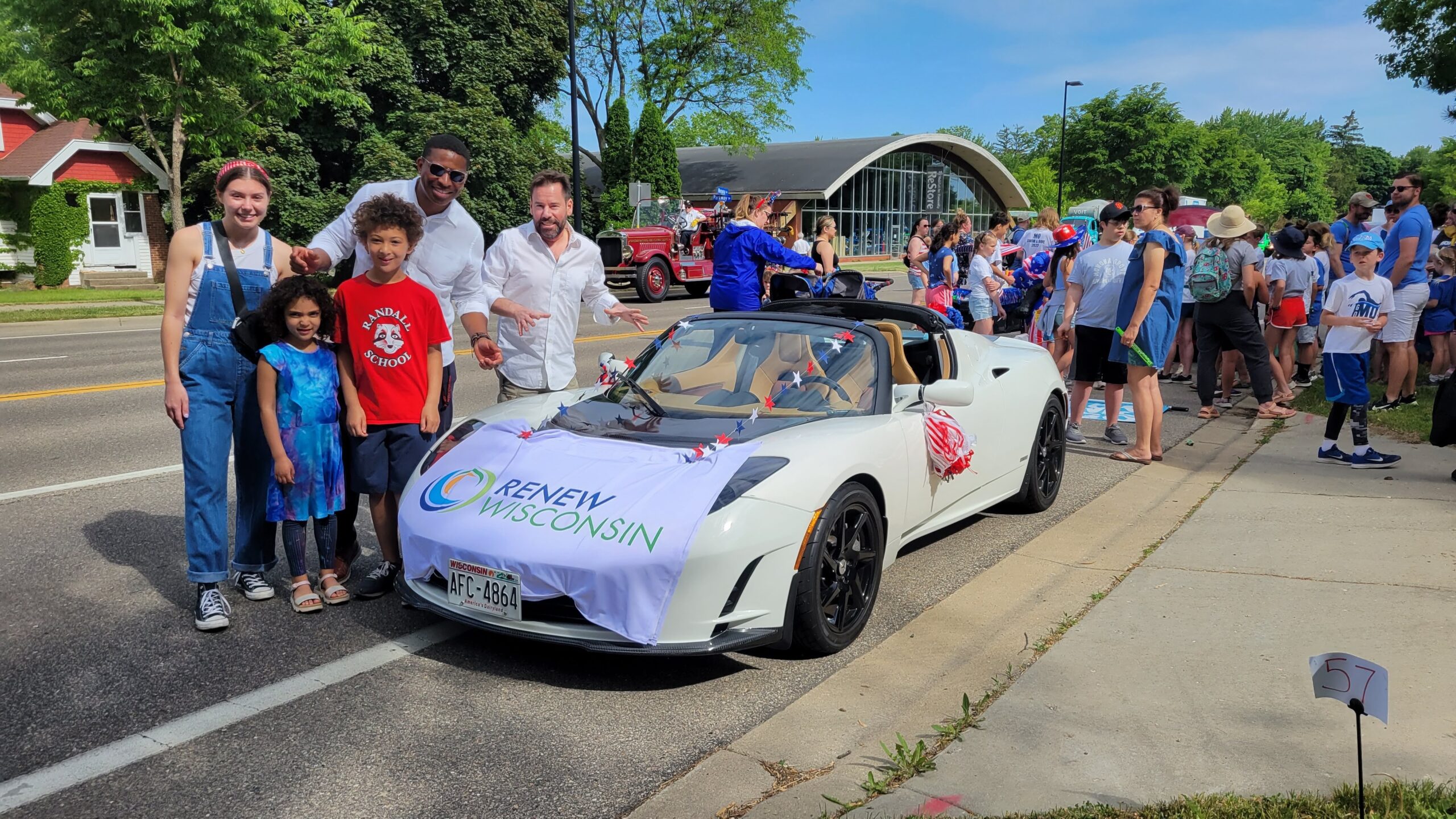
by Julia Holzschuh | May 30, 2023 | Community, Electric Vehicles, Events
RENEW Wisconsin was honored to participate in the Monona (WI) Memorial Day Parade on Monday, May 29. Emerging Technology Director Francisco Sayu, his family, and RENEW Intern Julia Herkert attended this community celebration to honor U.S. veterans and spread awareness about electric vehicles (EVs) and Wisconsin’s clean energy future.
“To participate in an event where staff members were able to connect with the community, but also able to honor the Americans who have given their lives serving their country, was an uplifting and memorable experience,” said Herkert. “RENEW hopes the information shared with parade attendees helps Wisconsin families understand the benefits of transitioning to EVs.”
RENEW staff walked alongside Geoff Hoffman; The owner of Hoffman Manufacturing and an advocate of clean energy, who provided a Tesla Roadster —Tesla’s first production car— to use as a parade vehicle.
Decorated with a RENEW Wisconsin banner, the car was immediately recognized by many as Hoffman’s Tesla is a popular sight among members of the community of all ages. RENEW staff members were happy to answer questions ranging from “Are electric vehicles convenient for owners with families?” to “Woah, is that a Tesla?”.
RENEW staff addressed many questions about EV operation and charging infrastructure. They were also able to communicate the benefits of a decarbonized Wisconsin economy.
RENEW is grateful to Hoffman Manufacturing and the City of Monona for the opportunity to participate in this event and discuss renewable energy and electric vehicles with the Monona community.
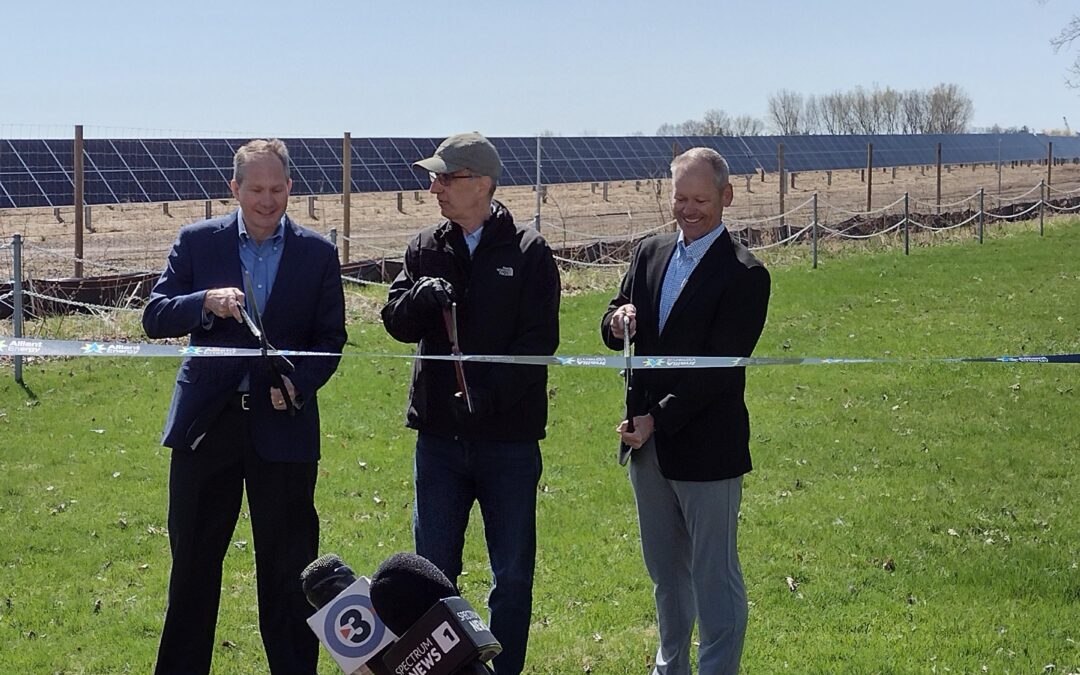
by Heather Allen | May 26, 2023 | Inflation Reduction Act, Netzero Wisconsin, Solar
On April 18, 2023, RENEW Wisconsin joined County Executive Joe Parisi, Alliant Energy, SunVest Solar, and other community representatives at the newly constructed Yahara Solar Project to celebrate Earth Week. With the completion of the 90-acre solar project, Dane County has become the 4th County in the United States to power all of its county facilities with 100% renewable electricity.
The Yahara Solar Project is a crowning achievement and an innovative approach to developing clean energy. It will initially be owned and operated by the developer, SunVest. Alliant will deliver the power generated to its customers, and Dane County will receive renewable energy credits (RECs) in return for leasing the land. After seven years, the Yahara Solar Project will be sold to Alliant Energy to become part of the utility’s clean energy generation resources. Pieper Electric was the installation contractor and worked with multiple local unions.
County Executive Joe Parisi and Dane County have demonstrated remarkable climate and clean energy leadership. Since 2011, the County has built cutting-edge technology to power heavy-duty equipment like snow plows and garbage trucks. In addition, Dane County also established an Office of Climate and Clean Energy in 2017. Over time, Dane County has built solar projects at the airport, campsites, and other county facilities. In 2020, Dane County released the Climate Action Plan: Today’s Opportunity for a Better Tomorrow which included a path to deep decarbonization.
Dane County’s efforts to demonstrate practical solutions to reducing energy bills and emissions are a model for the nation. Now Dane County is working to share that knowledge with residents. Check out the most recent podcast from Dane County Executive Joe Parisi, Kathy Kuntz (Director of the Office of Climate and Clean Energy), and me, Heather Allen (Policy Advisor for RENEW Wisconsin). This podcast discusses how the Inflation Reduction Act (IRA) makes it easy to save money and shift to clean, renewable energy.
Learn How You Can Benefit from the IRA:
• The Dane County Office of Climate and Clean Energy
• Rewiring America’s calculator to help identify which tax credits and up-front discounts you can utilize.
• MadiSUNsolar.com for Dane County residents interested in going solar.
• RENEW Wisconsin’s programs help nonprofits go solar and purchase electric vehicles.
• RENEW’s summary of the Inflation Reduction Act and clean energy resources.
Podcast Links:
• Video
• Audio
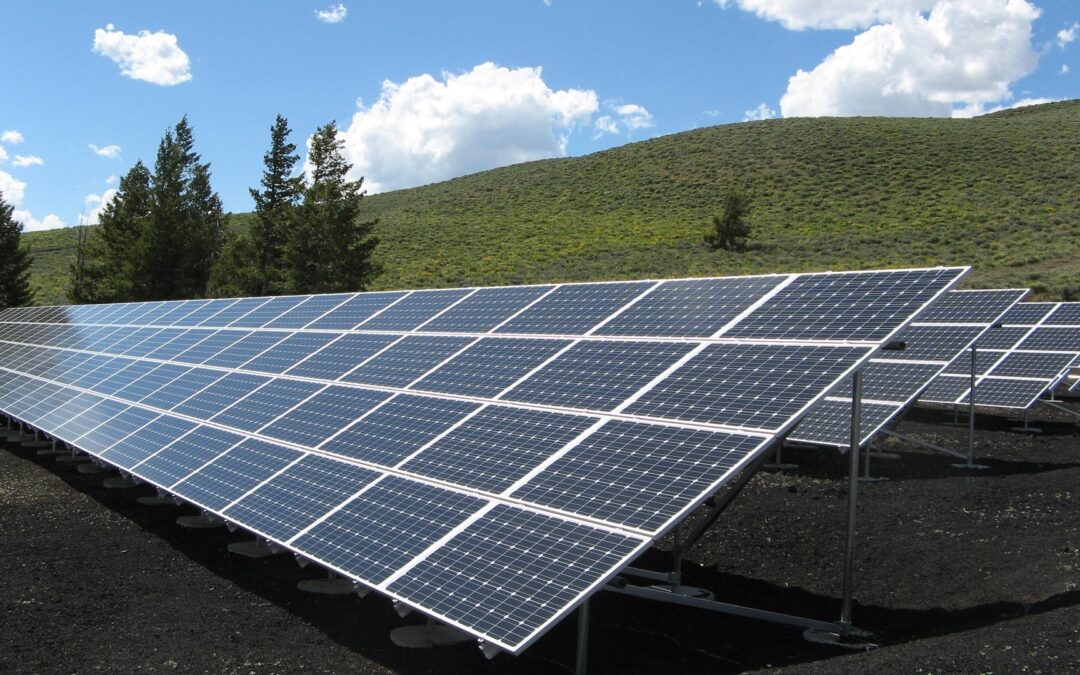
by Don Wichert | May 23, 2023 | Advocacy, Community Solar, Solar
From the Summer 2023 Hornblower newsletter, published by the Dudgeon Monroe Neighborhood Association.
Community solar is on a steep incline locally, regionally, and nationally. By the end of 2022 there were over 2,000 community solar projects distributed across 40 states, including Wisconsin.
Community solar allows individuals to support or own part of a solar system with others in their community. The supported solar system is typically located close to your county, has good solar access, and can take advantage of economies of scale and professional management.
Many households do not have the ability to adopt solar energy at their residence due to shade, are not owners, or don’t have the finances to purchase a solar system. The Dudgeon Monroe neighborhood has a lot of trees, which is fantastic for many reasons: shade, beauty, oxygen, wind barriers, and noise reduction, to name a few. However, large trees, especially on the south side, reduce the energy and economic ability to make electricity from the sun on your home or business.
Community solar allows almost everyone to support adoption of solar energy wherever they live or whatever their financial situation. The three current options for Dudgeon Monroe residents include: joining MGE’s Shared Solar Program, investing in the SolarShareWI Co-op created by RENEW Wisconsin, or Legacy Solar’s Co-op.
There are many ways to support solar in our neighborhood besides placing panels on a home or business. It’s a way to earn a modest return on extra cash while doing your part to support a clean energy future.
MGE’s Shared Solar program offers households and small businesses the opportunity to reserve a share of the electricity produced by MGE’s solar arrays in Middleton serving the program.
SolarShare WI Co-op allows co-op members to invest in 1-5 megawatt solar projects in Wisconsin and get a projected return on their investment of 5%.
Legacy Solar Co-op allows members to buy bonds or be a “Tax Sponsor” in systems typically on nonprofit commercial applications like churches, schools, and similar buildings.
Don Wichert, May 2023
Founder of RENEW Wisconsin and Emeritus board member.
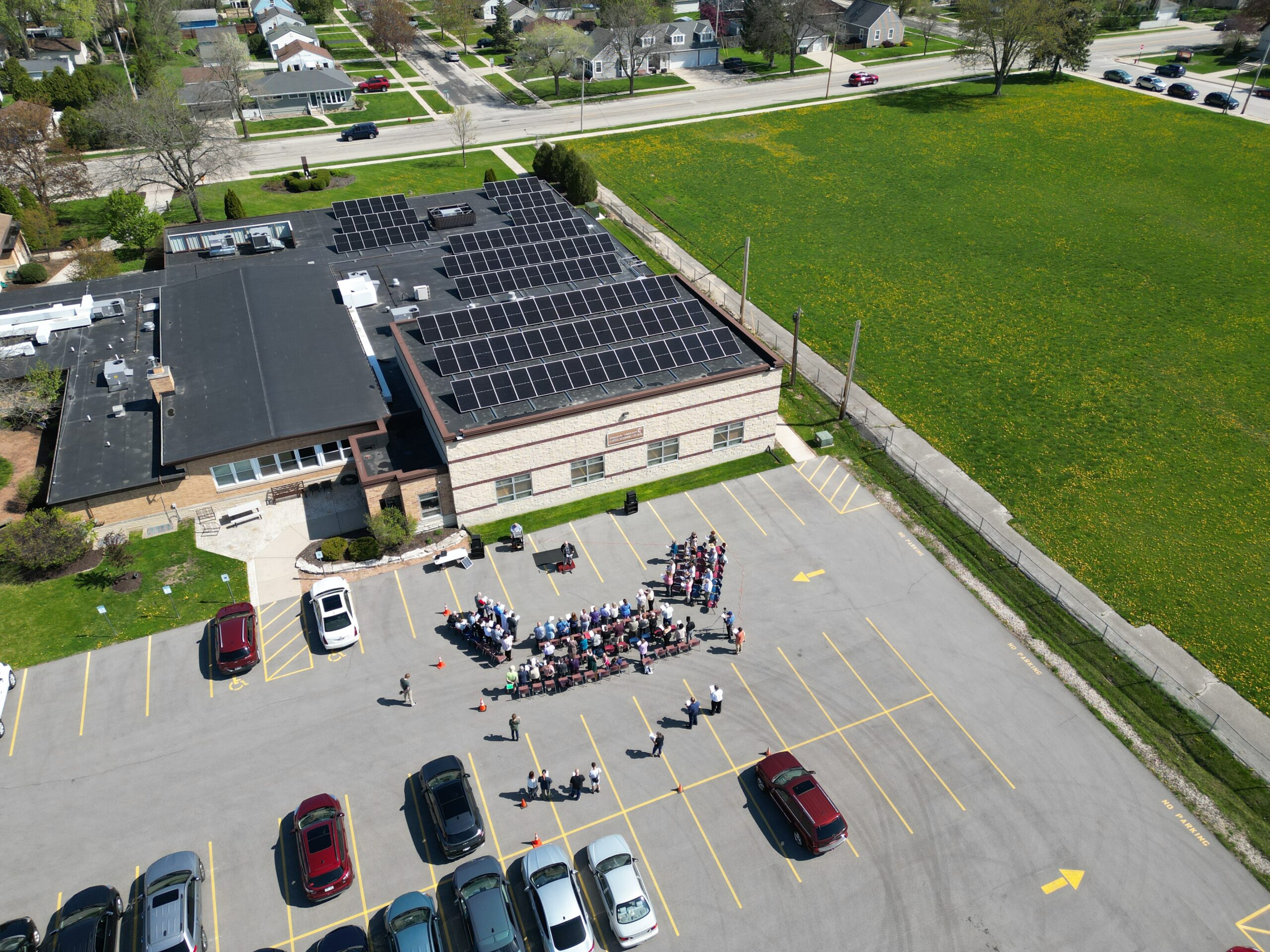
by Lauren Cohen | May 9, 2023 | Solar, Solar for Good
On Sunday, May 07, Emmanuel Community United Methodist Church (ECUMC) held a solar dedication ceremony for their 63-kilowatt, newly constructed solar array. Emmanuel Community United Methodist Church is a church located in Menomonee Falls, whose mission is to promote a vibrant and transformative community, sharing God’s love with its neighbors.
The solar system, installed by Arch Solar, consists of 118 solar panels and is anticipated to offset roughly 60% of the church’s annual electrical needs. “When evaluating layouts, Emmanuel decided to go with a “Wisconsin design to make the most of the winter sun and snow shedding,” said Andrew Holmstrom, C&I Solar Energy at Arch Solar. “This system will shed snow quicker, produce in low light conditions, and crank out power in the winter as well as the summer.”
Emmanuel Community United Methodist Church received support from Solar for Good, a RENEW Wisconsin program created in partnership with the Couillard Solar Foundation which aims to expand the use of solar power among nonprofits in Wisconsin. Emmanuel Community received 59 panels donated through this program.
In addition to this assistance, Emmanuel Community also worked with Legacy Solar Cooperative throughout its solar journey. Legacy Solar Cooperative provided valuable solar industry expertise as well as funding and financing assistance so that congregation members could help ECUMC get the most out of every renewable energy dollar being spent. They also helped the church compare multiple quotes on the project, which resulted in choosing Arch Solar as the installer.
The installation of this solar system not only increases the church’s fiscal responsibility but also helps meet its sustainability goals. “We are excited about our solar project because it furthers the ministry of our church to protect God’s creation,” said Doug Walters, chair of the church’s “Green Team” and key player of the project. “At the same time, it offers us a way to save money on our electrical bills for many years. It is an investment in our children’s future.”
Emmanuel Community United Methodist Church’s solar installation showcases their commitment to being good stewards of the environment and demonstrates how nonprofits and houses of worship can lead Wisconsin’s clean energy transition. This church exemplifies how renewable energy can be leveraged to serve the community, save money, and protect the planet.




